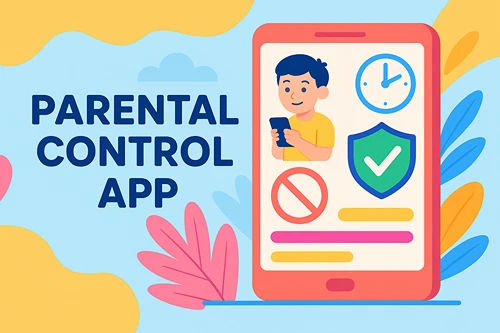How Much Support Should a Parent Give His Child?
Did you know that approximately 70% of parents felt unsure about how much support they should give their children? It can be a difficult task to find a balance between supporting financially, providing guidance, promoting independence and being a hands-on parent.
Most parents are working hard to provide the best things to their children, and sadly they don’t get to spend a lot of time with their kids anymore.
When couples part ways, the court decides a set up that is best for the kids. If you are awarded custody, the court will determine if you as a custodial parent can afford to support the child on your own. If you require child support, the court will set an amount that can be used for the child in the areas of food, clothing, shelter, medical care, school expenses, and other interests.
In states like California, non-custodial parents can expect to pay 25% of their income in child support for one child. Each state has its own formula and regulations when it comes to child support, but the main goal is to maintain the child’s standard of living and provide for their basic needs. Child support typically ends at 18 years old, but if the child is still a full-time high school student, child support continues until the child either graduates from high school or turns 19.
Now, let’s look into the practical strategies and other types of support that parents can provide to their children.
Understanding the Child’s Individual Needs
As we have mentioned, “support” is not just within the context of finances. Each child is different, with their own strengths, weaknesses, interests, and challenges. By taking the time to understand the preferences of your child, you can adjust what type of support you can provide them.
Pay attention to how they communicate, what activities they enjoy, and where they may struggle. This understanding will enable you to provide guidance and encouragement in areas where they need it most. Child custody lawyer Christopher A. Erskine suggests that you should also listen actively when your child speaks to you, not just to their words but also to their emotions and underlying needs.
Show empathy and validate their feelings, helping them feel understood and supported. Observing your child in various situations can provide valuable insights into their preferences and behaviors.
Encouraging Independence and Self-Reliance
Encouraging your child to take initiative and develop self-reliance is key to fostering independence. By allowing them to make decisions, solve problems, and take responsibility for their actions, you’re helping them build necessary life skills. Encouragement is important in this process; praise their efforts and provide constructive feedback to boost their confidence.
Supporting your child in setting achievable goals and working towards them independently empowers them to believe in their abilities. Encourage them to try new things, even if they may face setbacks. Let them know that making mistakes is a part of learning and growing.
Teach your child the value of perseverance and resilience. Help them understand that challenges are growth opportunities, and setbacks aren’t failures but stepping stones toward success. Encourage them to seek solutions independently, but also be there to offer guidance and support when needed. By fostering their independence and self-reliance, you are helping them prepare for the challenges they may face in the future.
Setting Clear Boundaries and Expectations
Setting clear boundaries helps children understand acceptable behavior and what’s not. Establishing expectations can give your child a roadmap for their actions, fostering a sense of accountability and responsibility.
Consistency is key when setting boundaries and expectations. Be firm in enforcing the rules and the consequences for crossing these boundaries are clear and reasonable. This consistency helps your child understand the importance of following rules and the consequences of their actions.
When setting boundaries, involve your child in the process. Explain why certain boundaries are in place and listen to their perspective. This dialogue fosters mutual respect and understanding. Be open to negotiation on certain boundaries to allow your child some input while maintaining the overall structure.
Providing Emotional and Moral Support
Supporting your child emotionally and morally is important for their well-being and development. As a parent, you have the opportunity to create a safe and nurturing environment where your child feels loved, valued, and understood. Offering emotional support can help your child handle their feelings, whether it’s joy, sadness, anger, or fear.
Moral support involves instilling values, ethics, and principles that guide your child’s actions and decisions. Teaching them empathy, kindness, honesty, and responsibility can shape their character and help them develop into compassionate individuals. By being a positive role model and offering guidance during moral dilemmas, you can empower your child to make ethical choices and contribute positively to society.
Seeking Professional Guidance When Necessary
When faced with complicated emotional or behavioral challenges beyond your expertise, seeking professional guidance can provide valuable insights and support for you and your child. Recognizing when to turn to a professional, such as a therapist, counselor, or psychologist, shows strength and a commitment to your child’s well-being. These experts have the training and experience to help deal with the difficult situations effectively.
Whether your child is struggling with anxiety, depression, behavioral issues, or other concerns, a professional can offer specialized interventions tailored to your child’s needs. Consulting with a professional demonstrates your willingness to prioritize your child’s mental health and development. Seeking outside help can lessen the pressure on you as a parent, allowing you to collaborate with someone who can provide objective insights and evidence-based strategies.
Conclusion
Find the right balance between supporting your child and allowing them to grow and learn. Seek professional guidance when needed but trust your instincts as a parent. Your love and support will help your child thrive and become a confident and independent individual.





